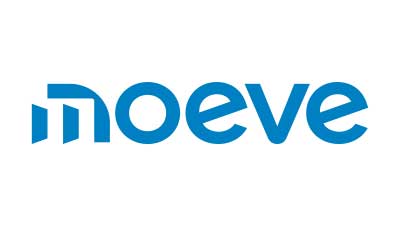Your basket is currently empty!
If you feel you could make a significant contribution to the programme, please email Llewellyn Bankes-Hughes at [email protected] or call +44 1295 814455 to discuss this further.
Programme details are updated regularly and are subject to change as new speakers are confirmed and themes developed.
Welcome Coffee & Exhibition Opens
Industry Partners
This session will welcome delegates to the Canary Islands and to the inaugural Bunkering & Sustainability Forum in Santa Cruz de Tenerife
Introduction
Llewellyn Bankes-Hughes, CEO & Founder, ship.energy
Welcome to the Port of Santa Cruz de Tenerife
Pedro Suárez López de Vergara, President, Port Authority of Santa Cruz de Tenerife
Welcome on behalf of the Canary Islands Government
Welcome on behalf of the Cabildo of Tenerife
CEO & Founder
ship.energy
Joint CEO, Shipping Innovation | Director, Maritime UK
Llewellyn began his career in the oil industry in 1980, working both as a journalist and as oil broker in London and New York, with Petroleum Argus, Eperon Petroleum, Albion Oil, Petroleum Intelligence Weekly and OPEC Listener, before joining MRC Business Information Group in Oxford – which later became Lloyd’s List Intelligence after MRC’s acquisition by Informa – where he rose to Managing Director before leaving in May 2003 to establish Petrospot Ltd.
He is a Founding Member of the International Bunker Industry Association, which he helped create in 1993 and has organised conferences, seminars, training courses and multiple other events in 35 countries around the world and attended events as a journalist or conference speaker in a further dozen countries.
Petrospot – recently renamed ship.energy to reflect the transition from petroleum to energy – is a dynamic independent publishing, training and events organisation focused on the maritime and energy transition sectors.
Its global publications include Bunkerspot magazine and online information service, the ship.energy decarbonisation intelligence portal and a growing library of books on shipping and bunkering.
Ship.energy organises globally-recognised training courses such as the Oxford Bunker Course and Bunker Experience and a range of bespoke and in house courses run around the world.
Ship.energy also organises major international conferences, including the following which have been created, curated and moderated by Llewellyn: Maritime Week Americas; Maritime Week Gibraltar: Maritime Week Africa; Maritime Week Las Palmas; Madeira Maritime Week; Portugal Shipping Week; and the Middle East Bunkering Convention. Other major events organised by ship.energy include: The Marine Energy Transition Forum; ship.energy Summit; Oman Maritime, Ports & Energy Forum; and Sustainable Marine Fuels Fest.
Llewellyn is co-creator, co-founder and co-owner of the biennial London International Shipping Week, whose first edition took place in September 2013 and has become one of the largest maritime events in the world.
Llewellyn was born in Abergavenny, Wales, in 1957 and lives in Oxfordshire.
This session will examine the international regulations that require ports and shipping to look at new fuels and technologies to meet increasingly stringent environmental obligations. It will also look at the range of options available and the pros and cons of each ‘new’ fuel, including LNG, biofuel, methanol, hydrogen, and ammonia
Global Regulations
Mediterranean ECA and other ‘local’ regulations
Alternative Fuels: Assessing the options
Nigel Draffin, Consultant
Biofuels
LNG
Wind power
Shore Power
Technical Consultant, Lecturer and Author
Nigel Draffin has been involved in shipping for over 50 years and in bunkering for over 25 years. He joined Shell Tankers in 1966, serving on all classes of vessel, including VLCCs and LNG tankers. In 1979, he joined the newbuilding department of Shell International Marine and later transferred to Shell’s R&D unit, specialising in control systems, fuel combustion and safety systems.
In 1986, Nigel moved to the commercial department as a bunker buyer and economics analyst, two years later becoming Head of Operational Economics, responsible for all of the fuel purchased for the Shell fleet. In 1996, he joined E. A. Gibson Shipbrokers which, in 2006, merged with US-based broking house LQM Petroleum Services, where he was Senior Broker and Technical Manager. He retired from LQM in July 2015.
Nigel is a founder member of IBIA, serving several times on its council of management, the board and as its Chairman. Nigel has written 10 books on bunkering, shipping and marine lubes published by ship.energy. Nigel is a member of IMarEST and Past Master of the Worshipful Company of Fuellers.
This session will look at which fuel options are currently being prioritised by Tenerife and other islands and mid-sized ports and the reasoning behind the choices they are making. It will also contrast their situation by citing the experience of larger, better served and financed ports in Europe and Africa, looking at the planning, investment and infrastructure decisions that ports are having to make and whether subsidies, public enterprise funding, and public-private partnerships are sufficient to supporting new companies and the necessary infrastructure projects.
Tenerife
Cape Verde
Barcelona
Ceuta
North European port
African port

This session will examine the current state of the marine fuels market and how increased digitalisation, through mass flow metering systems, electronic bunker delivery notes and other digital developments, might boost efficiency, enhance transparency, bolster reputations and increase profit margins, thereby benefitting those countries, regions, ports and companies willing and able to embrace technological developments.
Mass flow metering systems
E-BDNs and other developments
A port’s perspective
A bunker supplier’s perspective
A bunker buyer’s perspective
This panel session will take a deeper dive into some of the key issues discussed during the Forum as well as looking at what the energy transition means globally. It will look at geopolitical events and their impact on environmental initiatives and at maritime recruitment and training. The discussion might also cover the global orderbook for alternative-fuelled ships, newbuild and retrofit costs, the standoff between suppliers and buyers as each side waits for the other to invest first, and the prospect of ports becoming energy hubs in addition to their traditional role of facilitating the import and export of goods.
Sponsored by

